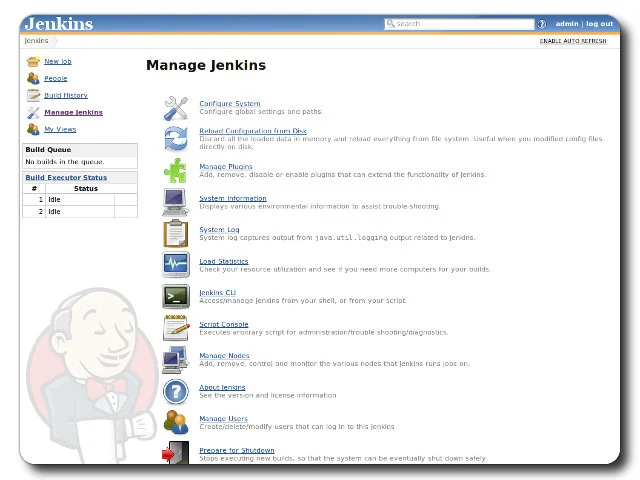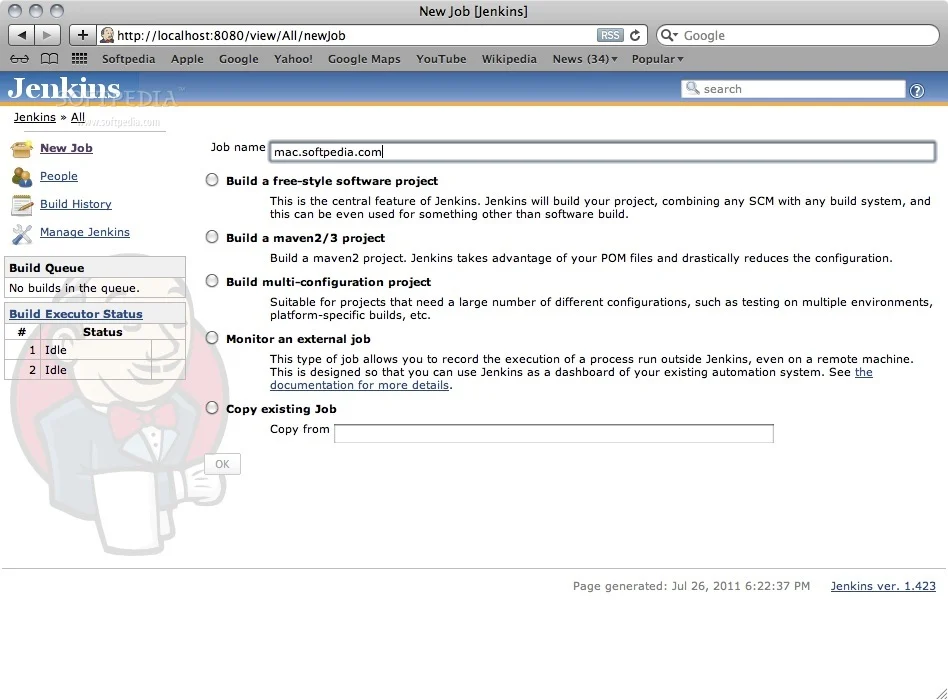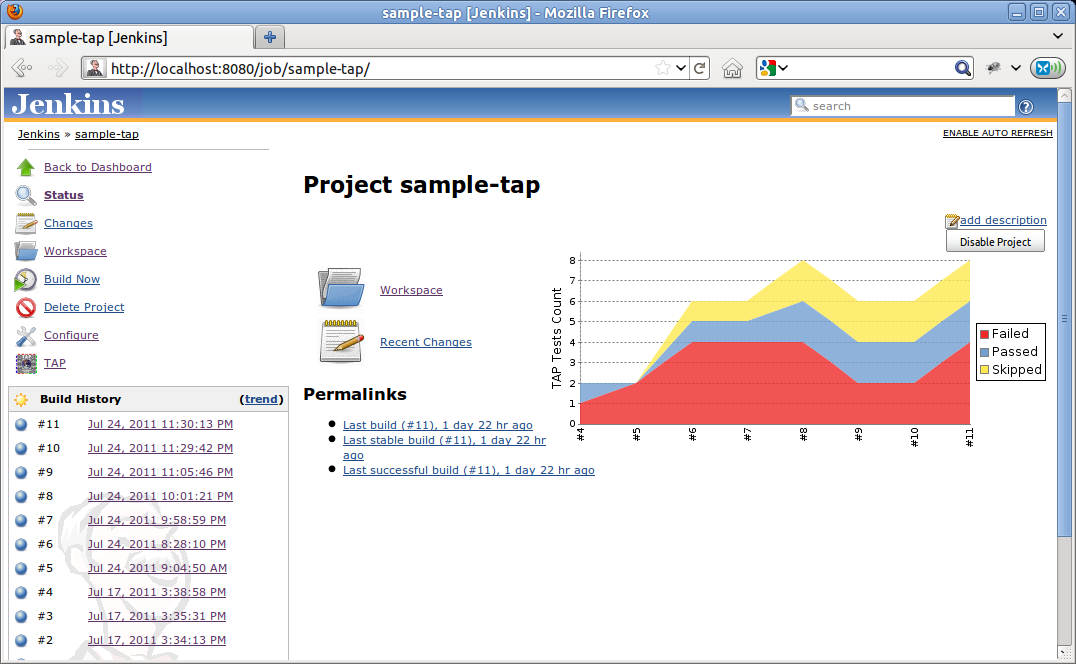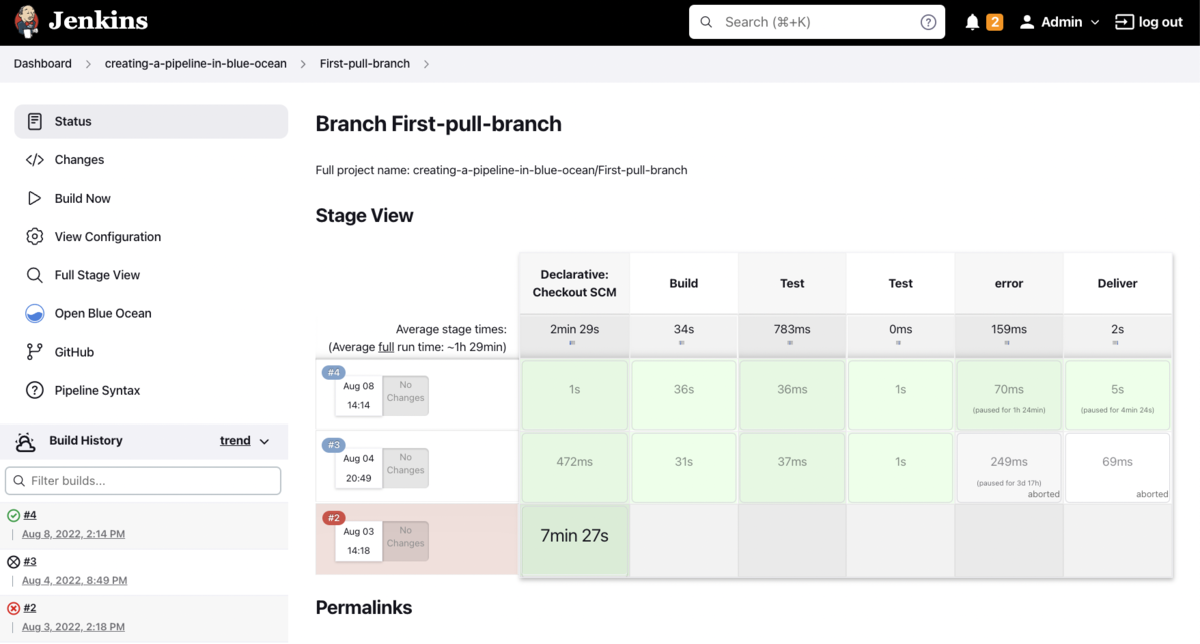

Jenkins is an open-source solution comprising an automation server to enable continuous integration and continuous delivery (CI/CD), which manages and controls software delivery processes such as build, document, test, package, stage, deployment, static code analysis, and much more throughout their entire lifecycle.
Jenkins is a Java-based open-source automation platform with continuous integration plugins. Jenkins achieves Continuous Integration with the help of plugins. Jenkins may be operated as a server on various operating systems, including Windows, macOS, Unix versions, and, most notably, Linux. It also runs on the Oracle JRE or OpenJDK and requires a Java 8 virtual machine or higher. Jenkins is often executed as a Java servlet within a Jetty application server, and other Java application servers, such as Apache Tomcat, can be used to run it.
Plugins, Easy to set up, Supports most environments, Open-source, Easy distribution, Continuous integration server (Bamboo, Jenkins, TeamCity, CruiseControl, and others), Source control software (e.g., SVN, CVS, Mercurial, GIT, ClearCase, Perforce, and others), Build tools (Make, Ant, Ivy, Maven, Gradle, and others), Automation testing framework (Appium, Selenium, UFT, TestComplete, and others).




Supported platform:
Windows, Mac, Linux, Unix
Language:
English
Average Team Size:
75